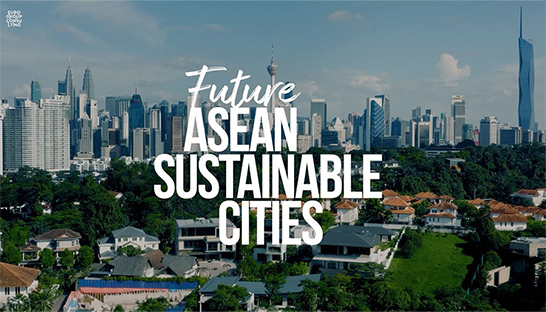Doubly affecting by climate change and rapidly growing urban populations, major cities in the ASEAN region face a series of challenges and opportunities. Southeast Asian countries need to embrace collaborative action, innovative solutions, and need more investment, according to a report from the French Foreign Trade Advisors in collaboration with Eurogroup Consulting.
Southeast Asia’s rapidly urbanizing cities are at the forefront of a transformation shaped by sustainable development imperatives, green technological advancements, and rising awareness. Tier 1 cities like Bangkok, Singapore, Jakarta, and Hanoi are clearly the powerhouses in the ASEAN region, but Tier 2 cities are already becoming major economic hubs in their own right.
The region’s economic growth and commitment to sustainability both present expanding opportunities for businesses to invest and operate in this diverse and dynamic market, driving solutions that support greener, more inclusive urban development.
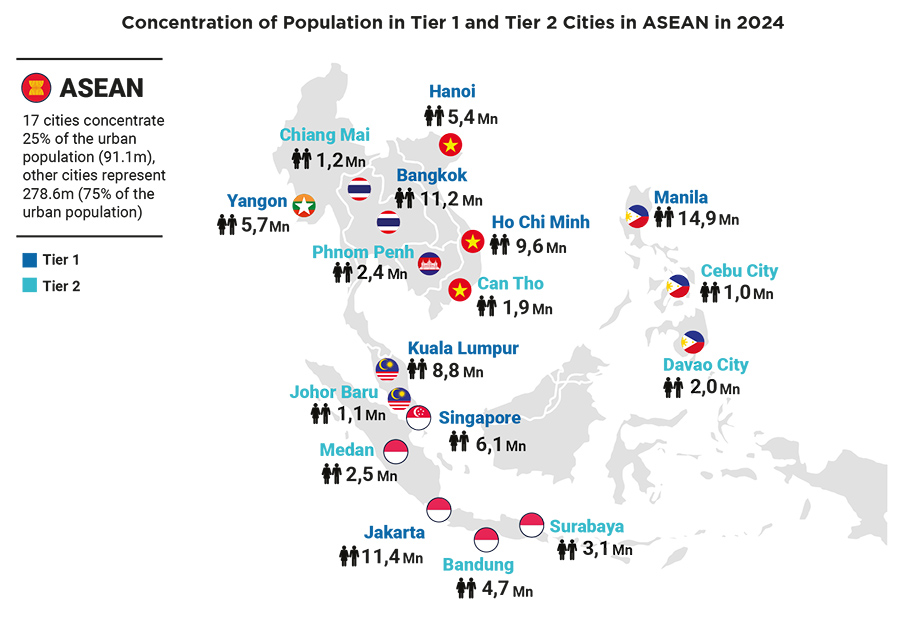
Source: Eurogroup Consulting
Renewable energy
Most of the energy mix in the ASEAN region is still made up of fossil fuels – in particular coal, oil, and natural gas. However, renewable and lower-emission sources like biofuels, hydroelectric, and wind and solar are a growing part of the energy mix, especially in countries like Laos (with its wealth of hydroelectric power derived from major rivers) and Myanmar (which developed a state-sponsored program for biofuels).
Cities currently account for about 70% of global greenhouse gas emissions, while covering only 2% of the Earth’s surface and hosting more than 50% of the population. More renewable energy sources in the energy mix will play a huge role in mitigating worsening conditions for health and safety in these large cities.
Southeast Asia’s tropical climate, characterized by high temperatures and heavy rainfall makes it particularly vulnerable to frequent natural disasters such as typhoons, floods, droughts, and heatwaves. But the huge amount of natural resources available to these countries, including renewable resource like sun and water, also represent a major opportunity.
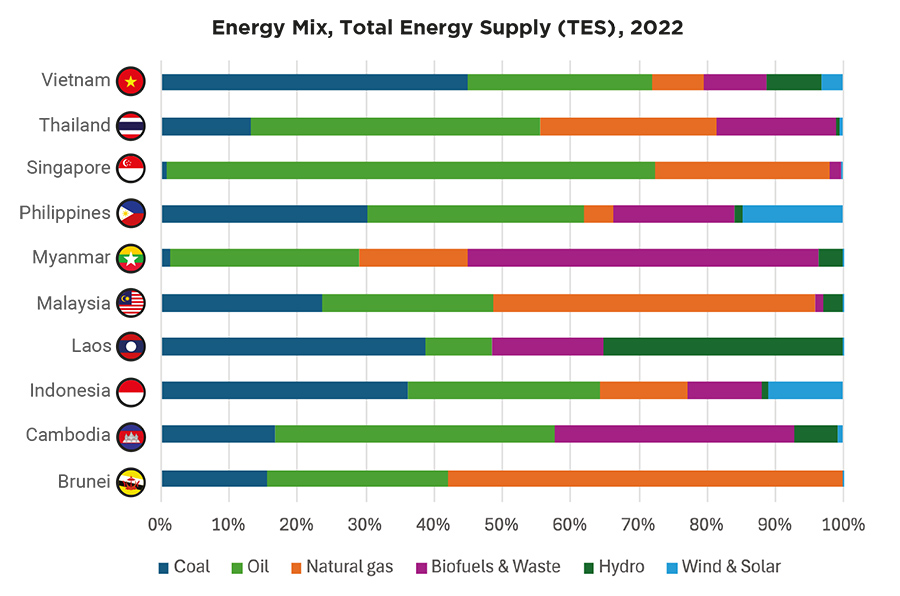
Source: Eurogroup Consulting, International Energy Agency
The report notes that governance needs to be a big part of sustainability efforts. The private sector does not self-regulate and governments need to step in with clear and ambitious standards.
There are already many existing governance tools in ASEAN, like for example the ASEAN Action Plan on Joint Response to Climate Change and the ASEAN Declaration on Environmental Sustainability (among others), which both hold member states responsible in their duties to address climate change and environmental protection while pursuing sustainable development.
Urbanization
There is a clear imperative for ASEAN cities to embrace the shift towards sustainable urbanization. The urban population in the region has gone from around 20% in 1970 to a full 50% in 2020, to eventually reach around 527 million people by 2050. Millions are expected to continue migrating to urban areas in the coming decades.
This all puts huge strain on infrastructure like housing, transportation, roads, and public services. The urgency for sustainable urban planning has never been greater, as cities must balance the needs of their growing populations with long-term resilience, inclusivity, and environmental stewardship to ensure a livable future for all.
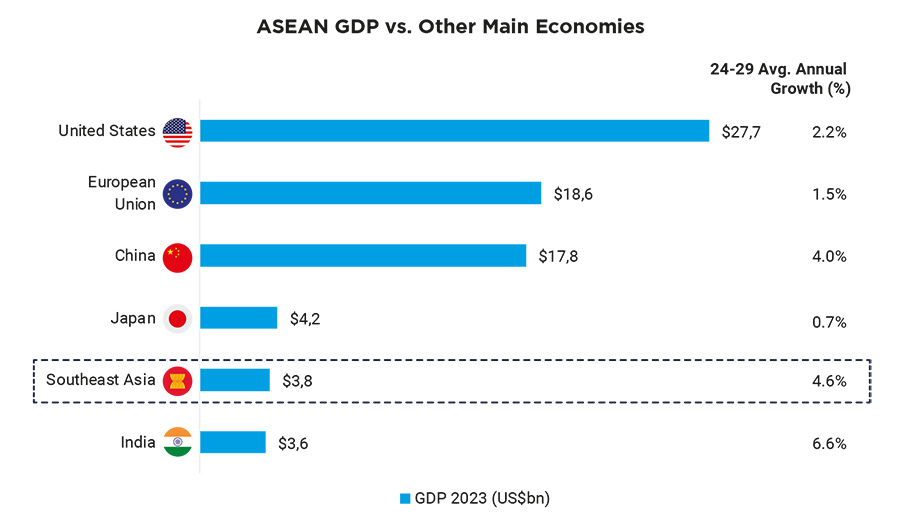
Source: Eurogroup Consulting, International Monetary Fund
Bringing together stakeholders
In order to drive sustainable urban development across ASEAN, businesses need strategies that address the region’s unique challenges while leveraging its dynamic opportunities. Success hinges on tailored approaches that foster trust, align with regional priorities, and engage local stakeholders directly.
Part of a successful strategy should include deep market research to understand the unique cultural, social, and economic dynamics of each market within Southeast Asia. Strategies must align with the sustainability goals of individual cities, countries, and the broader ASEAN organization. This alignment builds trust and credibility.
The report also highlights the importance of strategic partnerships with local and regional businesses, non-governmental organizations, and government agencies. Such collaborations help make markets more accessible and provide important local insights.
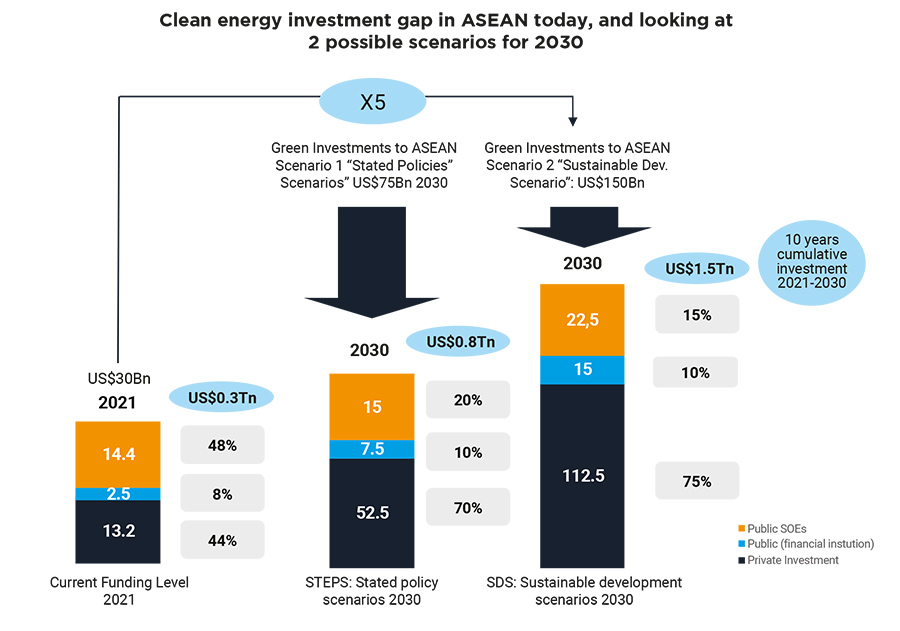
Source: IEA, BCG Analysis, Eurogroup Consulting analysis
One of the main takeaways from the report is that by integrating digital solutions such as energy-efficient systems, waste reduction strategies, and efficient transportation networks, these urban centers are setting new benchmarks for urban planning while addressing the unique pressures of rapid urbanization.
“ASEAN exemplifies a growing focus on sustainable urbanization within the developing Asia-Pacific, emphasizing the challenge of balancing rapid growth with inclusive and environmentally responsible practices. Across the region, cities are undergoing transformative changes, driven by infrastructure projects and real estate development,” said Pierre-Arnaud Cassin, President of the French Foreign Trade Advisors.
“In this context, the development of smart cities has emerged as a key trend, with urban hubs increasingly adopting advanced technologies and sustainable designs. These cities aim to enhance residents’ quality of life, optimize resource use, and build resilient infrastructure.”


